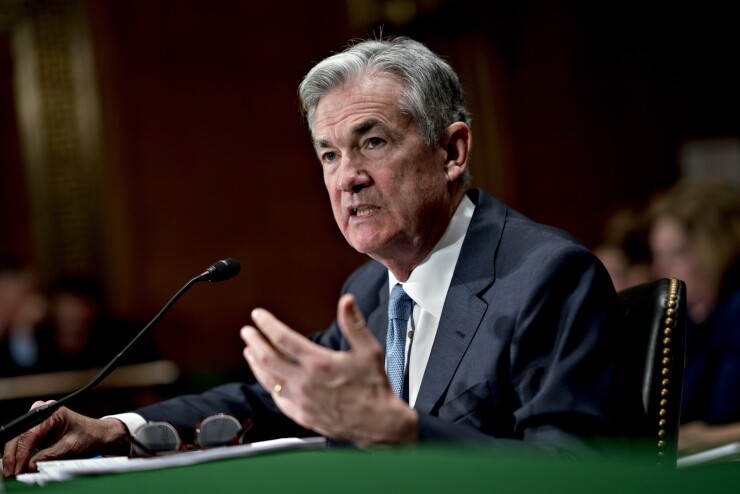Interest rates are nearing the neutral level — the rate that neither stimulates nor restrains economic growth — Federal Reserve Board Chair Jerome Powell said Wednesday.

"The Committee has stated that we do not expect it will be appropriate to reduce the target range for the federal funds rate until we have gained greater confidence that inflation is moving sustainably toward 2%."
“Interest rates are still low by historical standards, and they remain just below the broad range of estimates of the level that would be neutral for the economy — that is, neither speeding up nor slowing down growth,” Powell told the Economic Club of New York, according to prepared text released by the Fed. “My FOMC colleagues and I, as well as many private-sector economists, are forecasting continued solid growth, low unemployment, and inflation near 2%.”
Powell’s comments followed remarks last month where he said the Fed is probably “a long way from neutral.”
But projections don’t always work out, he noted. “For this reason, sound policymaking is as much about managing risks as it is about responding to the baseline forecast. Our gradual pace of raising interest rates has been an exercise in balancing risks. We know that moving too fast would risk shortening the expansion. We also know that moving too slowly — keeping interest rates too low for too long — could risk other distortions in the form of higher inflation or destabilizing financial imbalances. Our path of gradual increases has been designed to balance these two risks, both of which we must take seriously.”
Further, he noted, monetary policy works with a lag, and the impacts on the economy might not be seen in their entirety for a year or more.
Powell said the “economy is now close to” maximum employment and price stability — the Congressional mandate to the Fed. “The unemployment rate is 3.7%, a 49-year low, and many other measures of labor market strength are at or near historic bests,” he said. “Inflation is near our 2% target. The economy is growing at an annual rate of about 3%, well above most estimates of its longer-run trend.”




